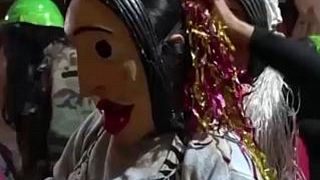Cameroon
Getting an accommodation in Cameroon’s Douala city is a nightmare, as one is required to pay 6 months or even a year’s rent advance. As a result, many young working people who are faced with this harsh reality, prefer to stay longer with their parents.
Socrate Tanleu is a tenant and is frustrated by this practice.
“For example, I have had to pay up to 12 months to get an apartment and for a young person who is just entering the workforce, it is not easy to find 12 months to pay a landlord to get an apartment’‘, Tanleu told Africanews.
The practice is illegal, but many apartment owners are defiant.
“Legally, this practice is not normal because rent is payable after occupation. The rent advance is not legal”, said Cameroonian-based lawyer, Nicolas Ntamag.
But for many homeowners, this practice is a safety net against an unstable labour market.
Bertrand Tashinda owns an apartment in Douala.
“We have the public sector which employs very few people and with the private sector, there is no guarantee of employment. At any time you can lose your job for more misleading reasons than any other. So it makes the landlords think it’s better to take a year and with a year he can even build up a little reserve of money to be able to repair his apartment if necessary”, said Tashinda.
Like Ivory coast, Cameroon wants to put in place a more advanced legal framework for tenants and property owners.
The country plans to limit payment of rent advance and the deposit to two months. It hopes this will facilitate access to housing for many Cameroonians.













01:30
Abu Dhabi hosts first Global South Economic Forum
11:14
Rwanda Walks Away: what’s behind the Central Africa rift? [Business Africa]
01:10
China to remove tariffs on goods from all African countries
01:52
138 million child workers globally in 2024, number down from 2020
02:25
São Tomé and Príncipe: helping fishers and their future
00:52
Botswana cuts back on diamond production amid weak global demand